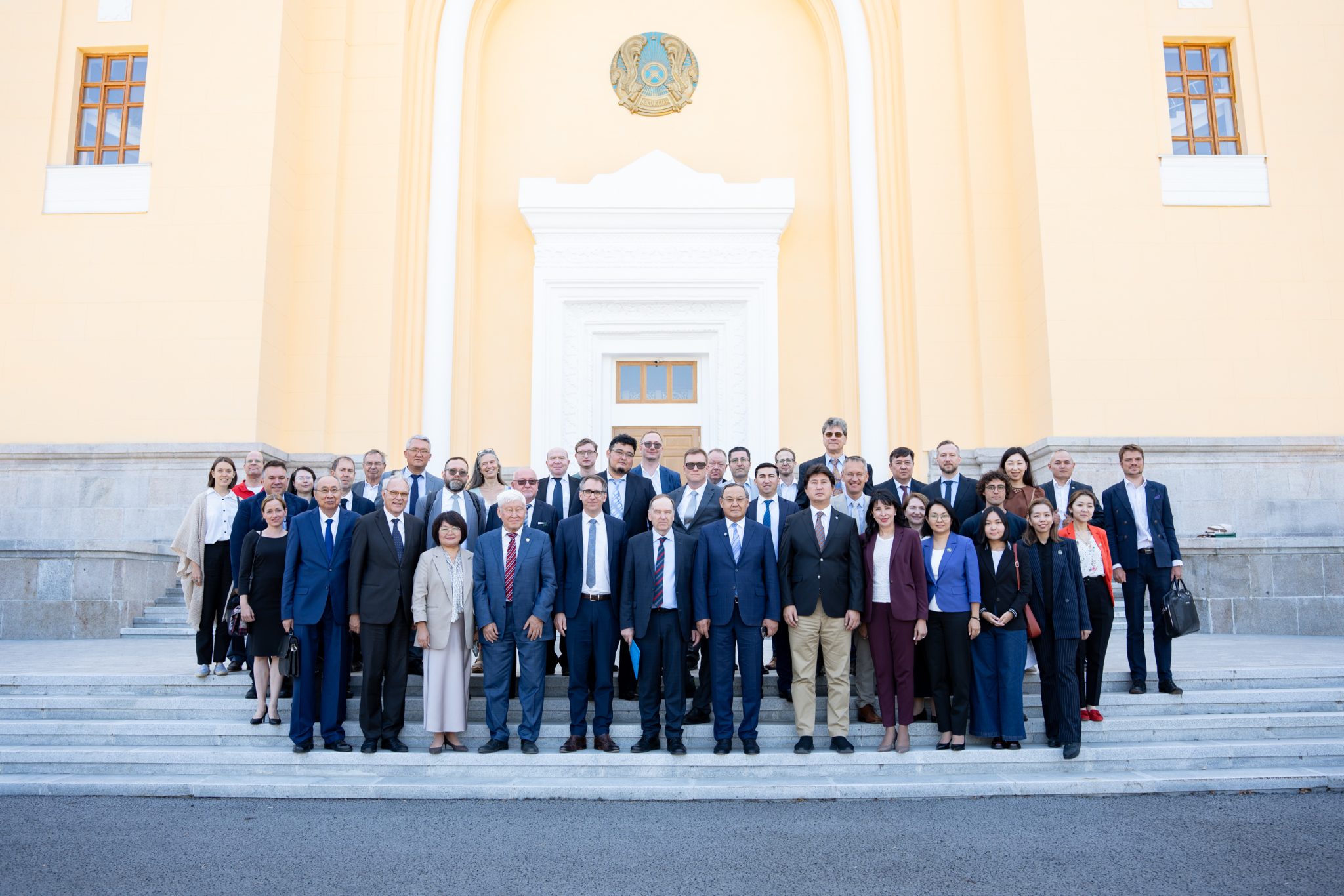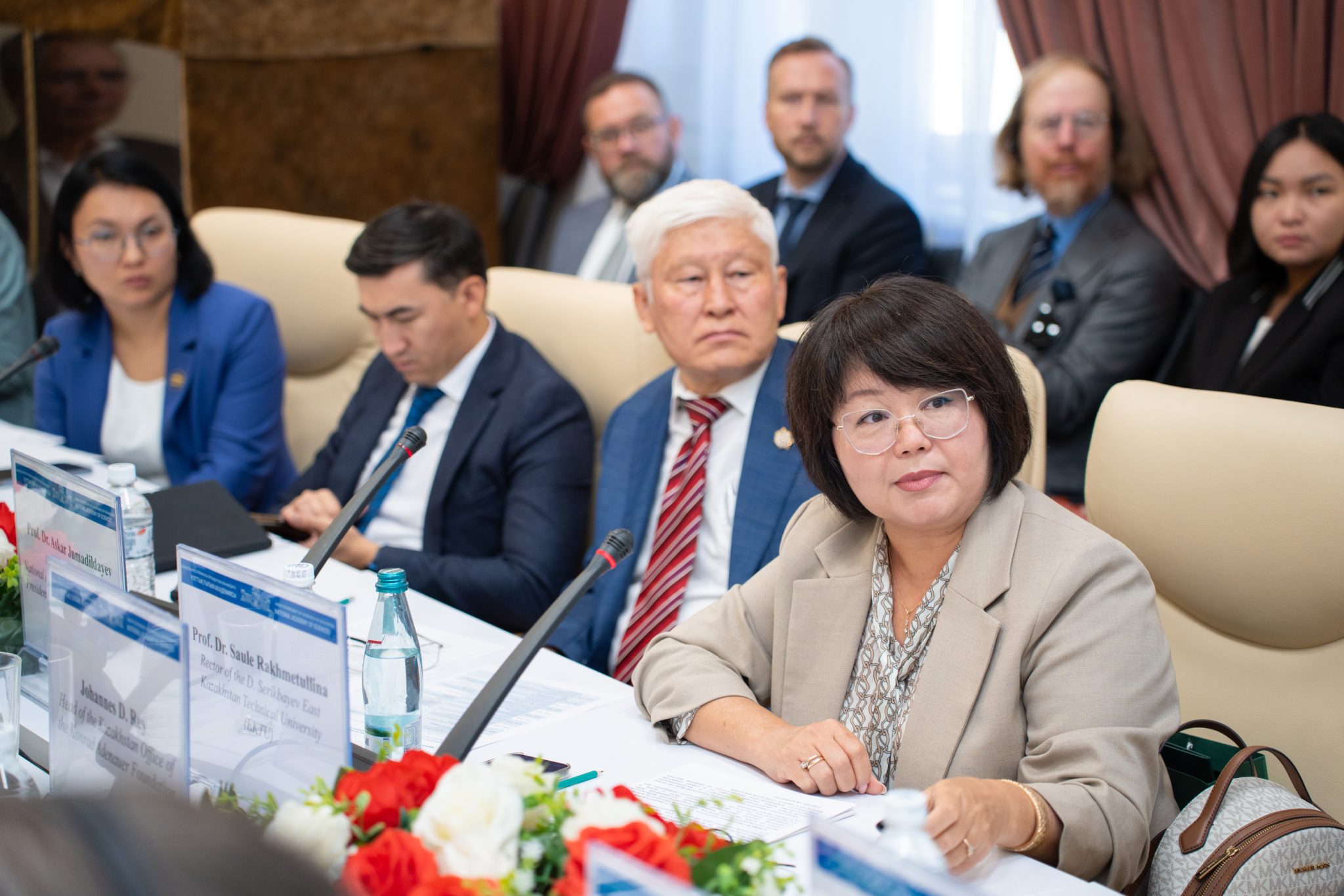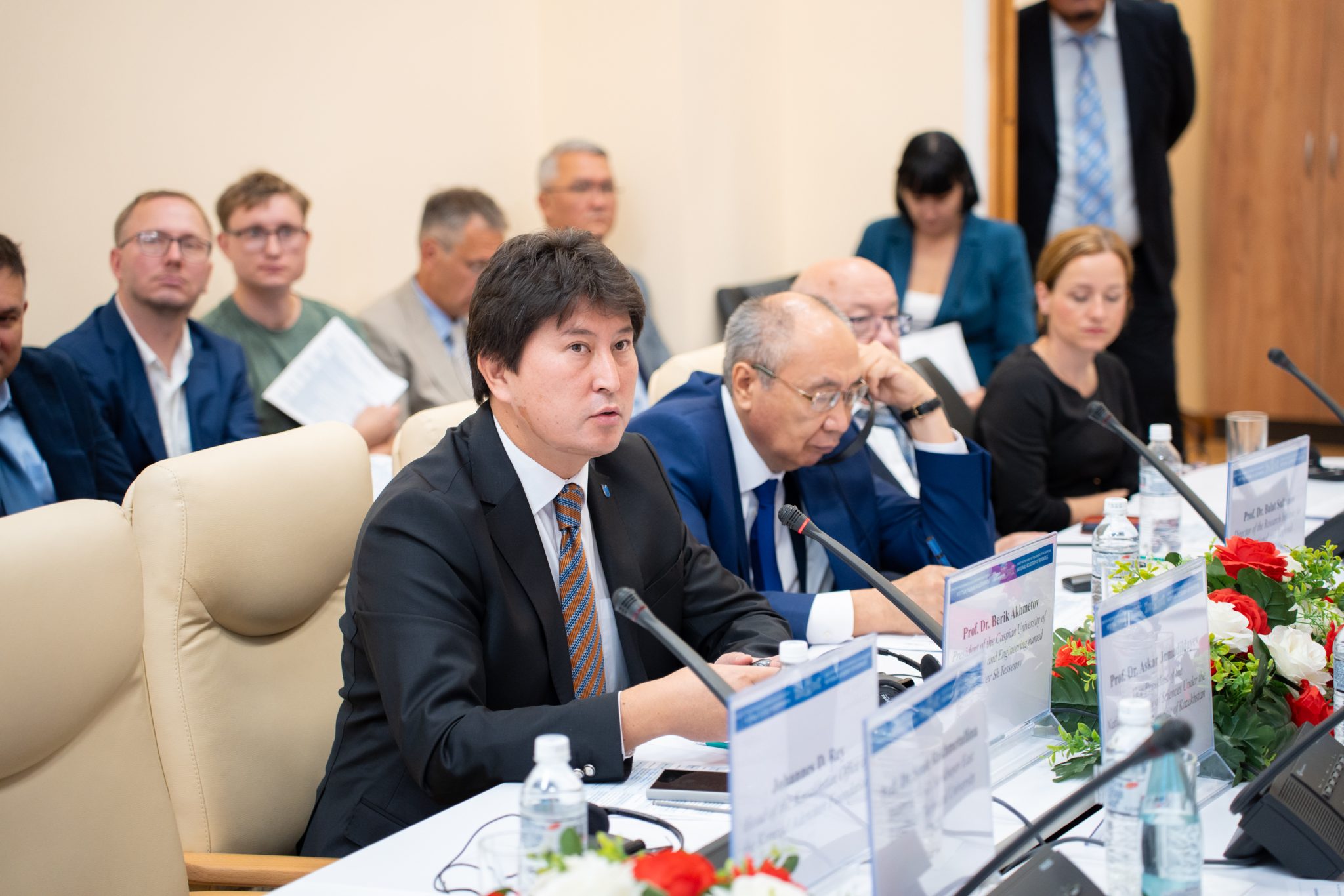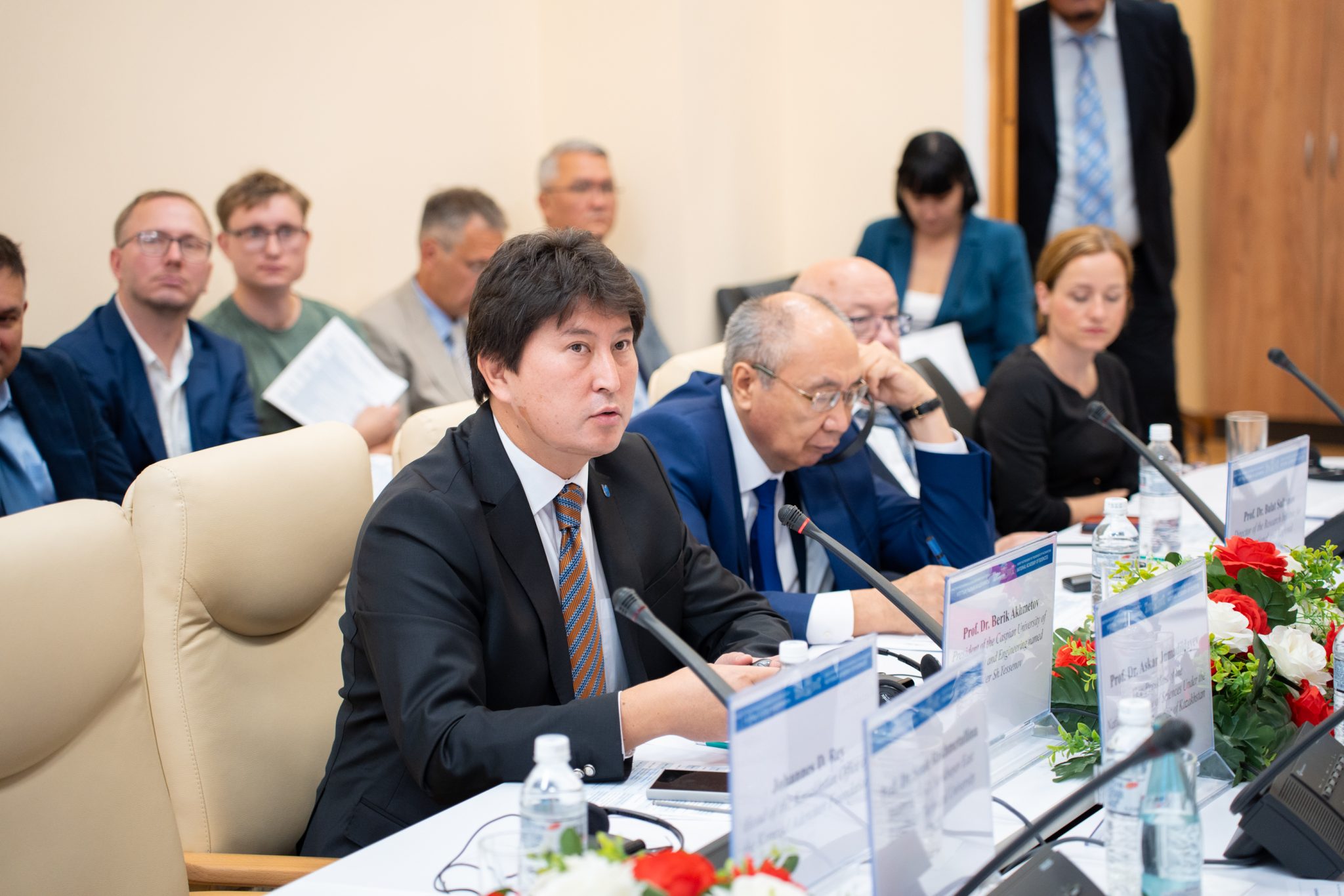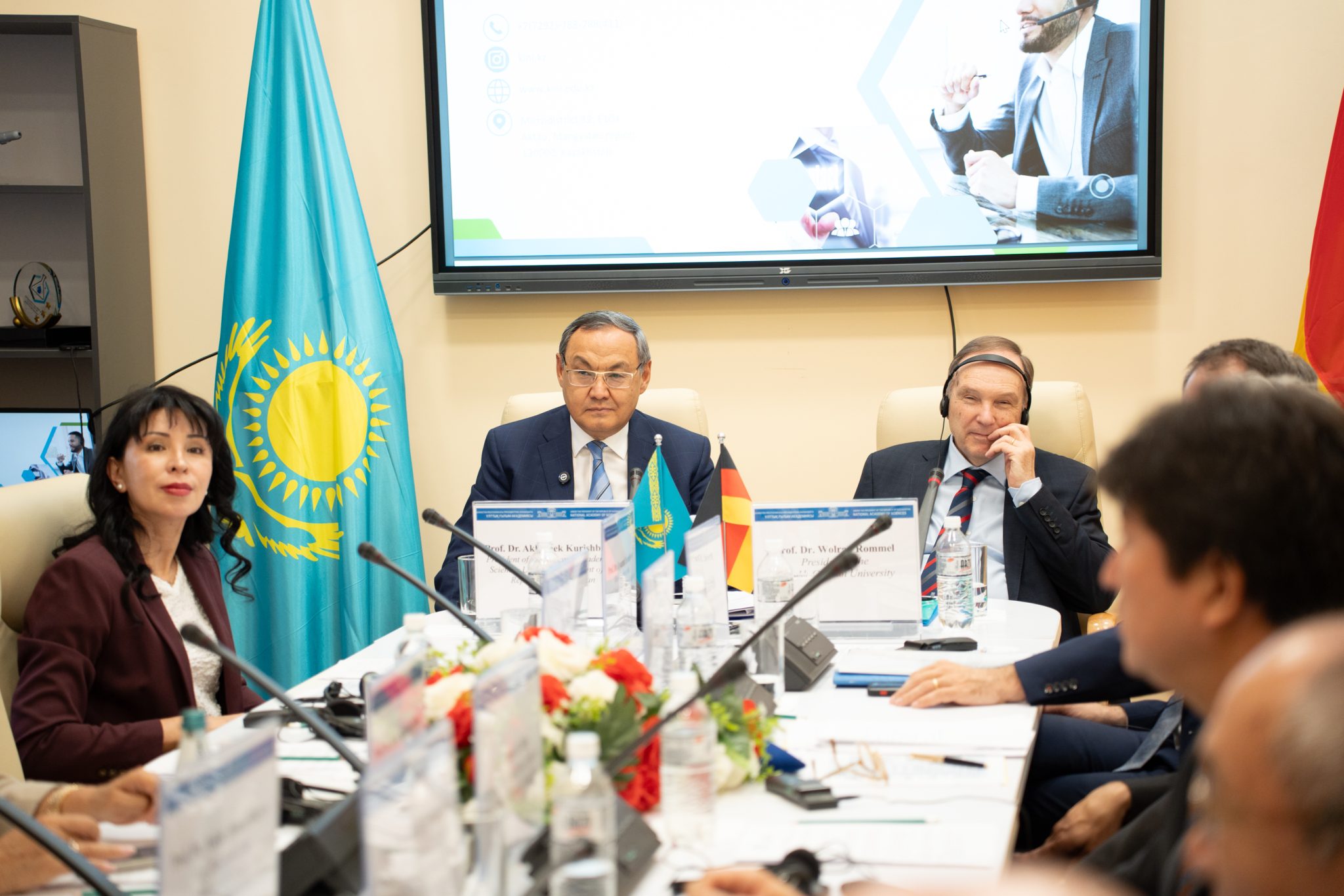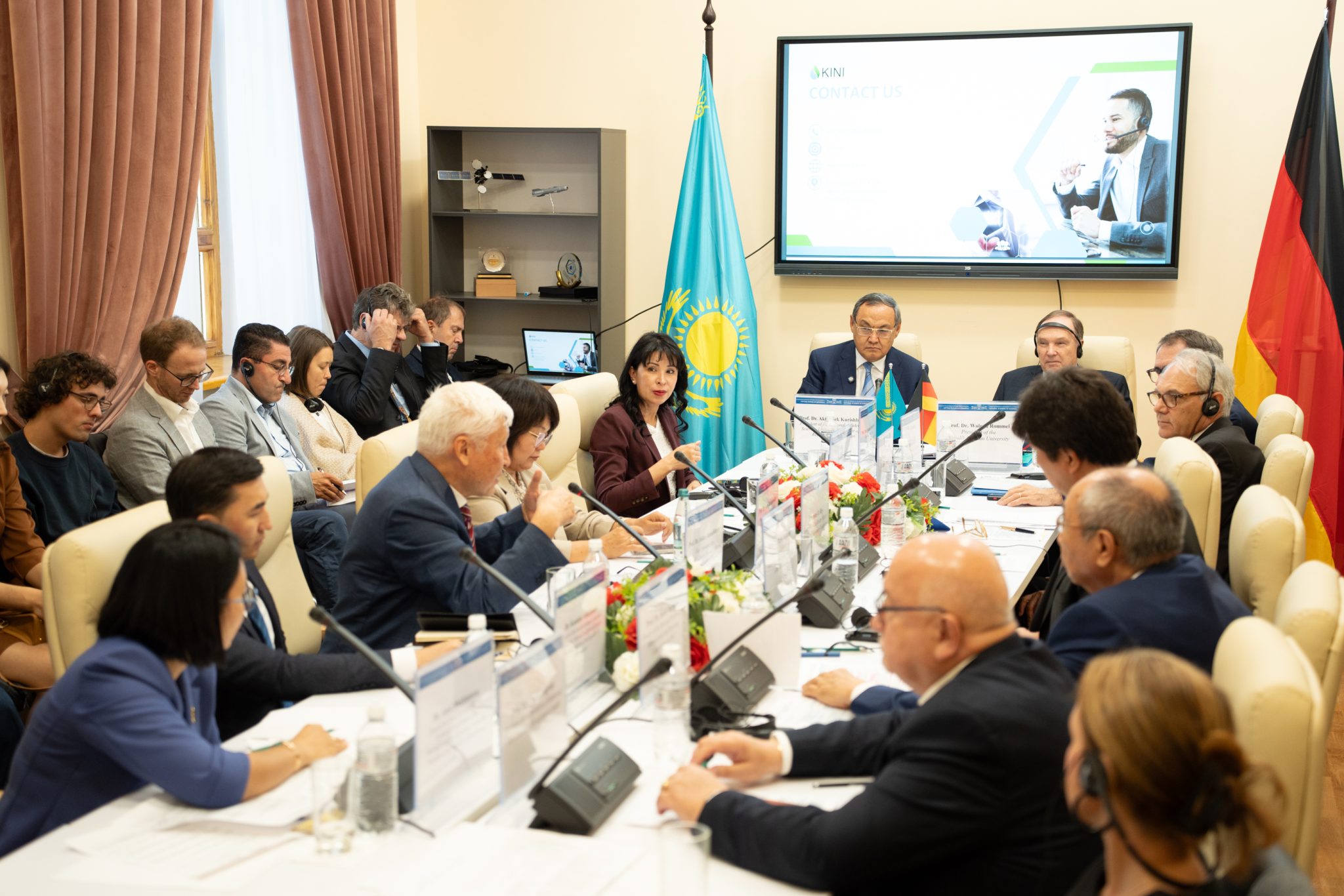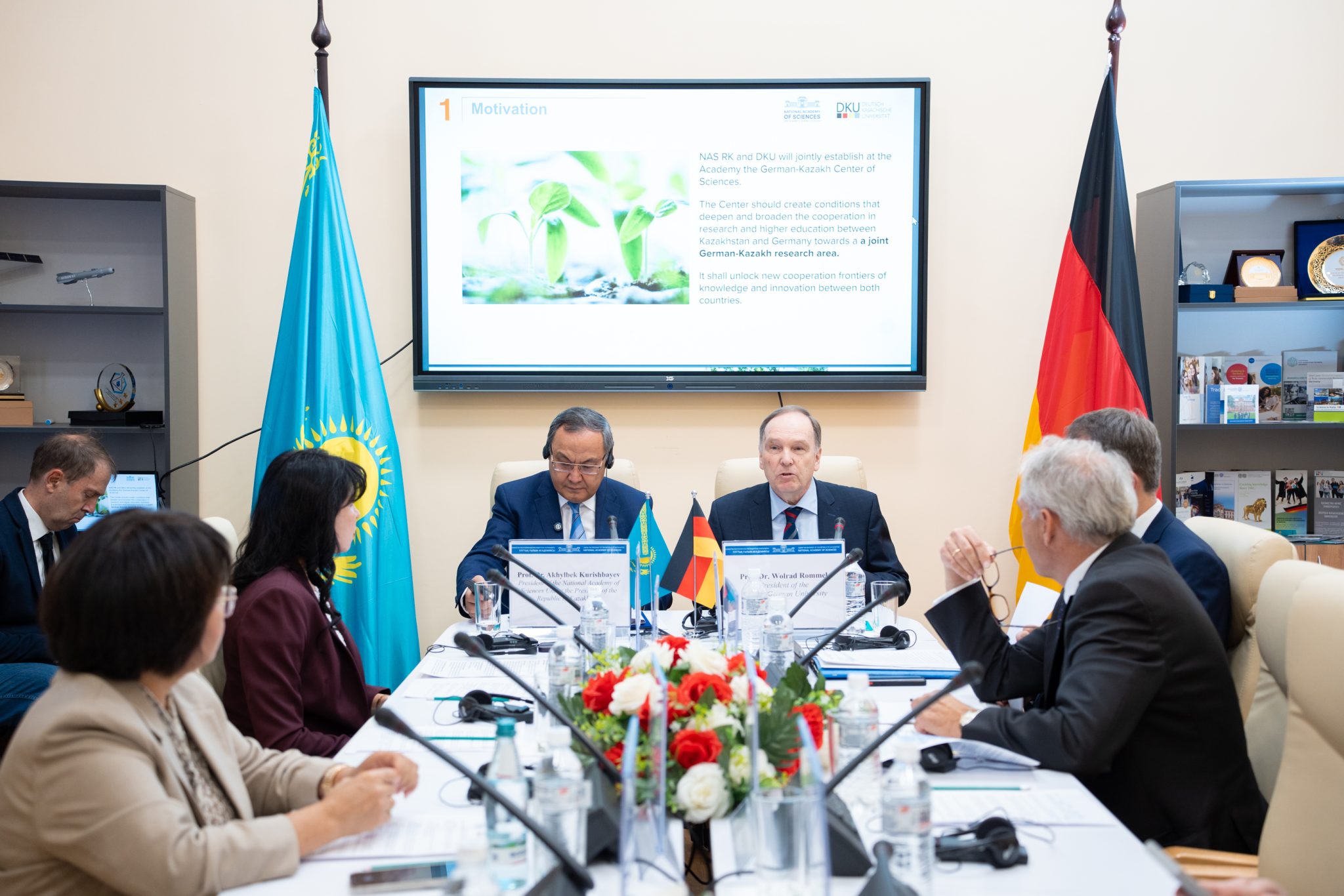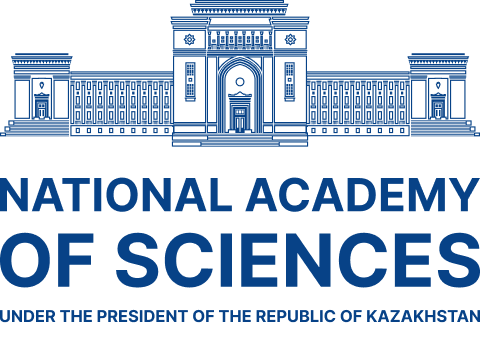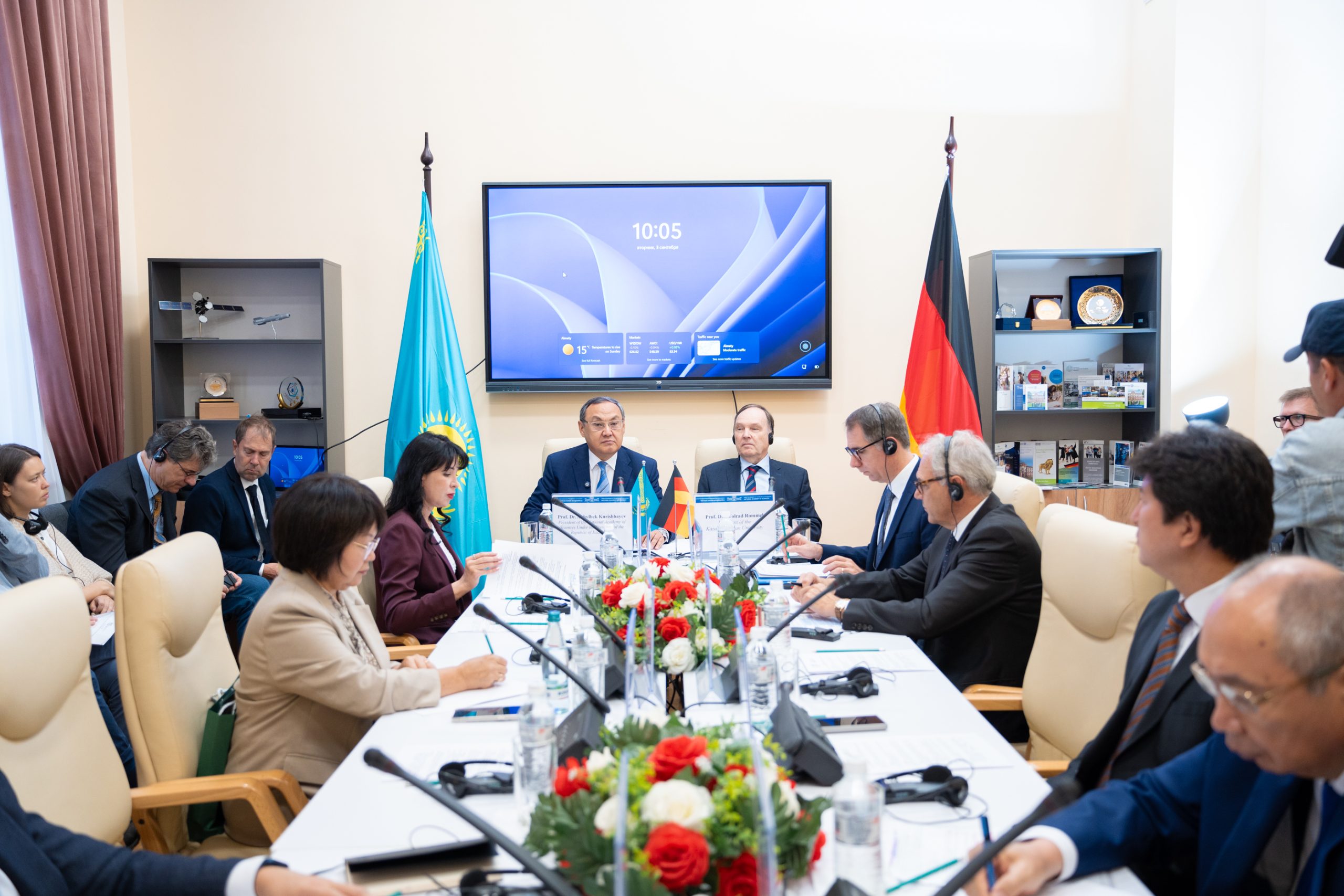On September 3, 2024, a significant event took place in Almaty, at the National Academy of Sciences of the Republic of Kazakhstan under the President of the Republic of Kazakhstan — the presentation of the Kazakhstan-German Research Cooperation Center (KGRCC). The opening of the Center, scheduled for September 17, 2024, as part of the state visit of the Federal Chancellor Mr. Olaf Scholz to the Republic of Kazakhstan, marks an important milestone in strengthening scientific ties between Kazakhstan and Germany.
The round table on the topic: Presentation of the Kazakhstan-German Research Cooperation Center «From Idea to Reality» was opened by Professor Akhylbek Kurishbayev, President of the National Academy of Sciences of the Republic of Kazakhstan, who highlighted the importance of establishing the center to strengthen scientific cooperation between the two countries. Professor AkhylbekKurishbayev emphasized that this center will become a key link in the development of joint scientific research and the exchange of advanced expertise.
Professor Dr. Wolrad Rommel, President of the Kazakh-German University, presented the main goals and objectives of the new center, particularly emphasizing its role in capacity building and supporting joint scientific projects. In her speech, Professor Lyazzat Yeraliyeva, Vice President of the National Academy of Sciences of the Republic of Kazakhstan, stressed that the center would not only promote scientific integration but also foster cultural exchange between Kazakhstan and Germany.
Special attention was drawn to the speeches of Dr. Kai Sicks, Secretary-General of the German Academic Exchange Service (DAAD), and Monika Iversen, Ambassador of the Federal Republic of Germany to Kazakhstan, who expressed their readiness to support and further develop cooperation within the framework of the new center. Additionally, Matthias Kiesler, Consul General of the Federal Republic of Germany in Almaty, and Johannes D. Rey, Head of the Kazakhstan Office of the Konrad Adenauer Foundation, shared their visions for the future development of joint scientific projects and underscored the importance of international collaboration in achieving high scientific results.
Among the distinguished guests at the round table were professor Askar Jumadildayev, Doctor of Physical and Mathematical Sciences; MBA, PhD, Assistant Professor Saule Rakhmetullina, Rector of the D. Serikbayev East Kazakhstan Technical University (EKTU); MBA, PhD, Professor Berik Akhmetov, President of the Caspian University of Technology and Engineering named after Sh.Yessenov; Professor, Dr. Bulat Sultanov, Director of the Research Institute for International and Regional Cooperation at DKU; and Professor, Dr. Primkul Ibragimov, Member of the Board, First Deputy Chairman of the Rector of the Kazakh State Agrarian Research University (KAZNARU).
The event concluded with an official visit to the Kazakhstan-Germany Scientific Center, located on the second floor of the «Ğylym Ordasy» building, where the round table participants discussed plans and strategies for its operation. An agreement was reached to deepen scientific interaction and implement joint initiatives.
The center will contribute to the development of bilateral scientific cooperation aimed at addressing contemporary issues. Key areas of the center’s work will include research in ecology, agrobiology, life and health sciences, as well as education and civil society.
Particular attention will be paid to supporting young scientists, for whom the Center will become a platform for exchanging knowledge and best practices, as well as a place for developing new technologies and innovations. This event marks the beginning of long-term cooperation, which will not only strengthen Kazakhstan’s scientific position on the global stage but also create the conditions necessary for addressing global challenges.
This event marked a significant milestone in the development of scientific ties between Kazakhstan and Germany, laying the foundation for long-term and fruitful cooperation in science and technology.
